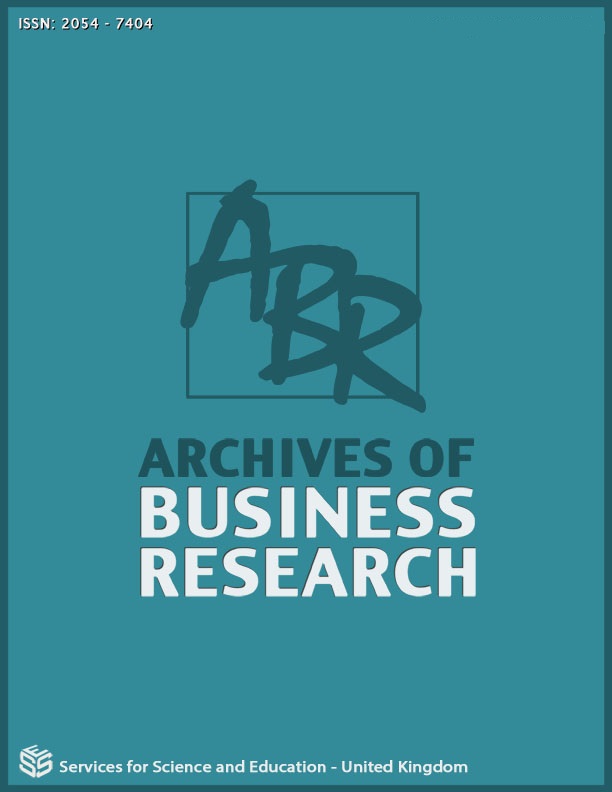Organizational Competitiveness and Digital Governance Challenges
DOI:
https://doi.org/10.14738/abr.1003.12016Keywords:
Digital Governance, digital efficiency, organizational performance, knowledge creationAbstract
Digital governance improves the efficiency of the system in general, resulting in improved business and merchandising performance. The purpose of digital governance has always been to make life easier for people and to improve the level of satisfaction of customers. In response to the recovery of the markets, organizations around the globe are now playing a different role. The role of digital governance at the moment is largely one of facilitation rather than of regulation. It is true that digital has been around for some time, but there is still a lot of work to be done to fully realize its potential. The purpose of this paper is to explain how concrete elements of digital governance can affect the competitiveness of businesses. Thus, this was a key element for the successful recovery of the markets following the era of Covid. This is despite the fact that it has been around for so long. In order for a company to successfully compete in international markets and maintain quality, its level of productivity performance in comparison with its competitors plays a very significant role.
References
. Baisya, R. K., & Tiwari, S. P. (2008). E-governance Challenges and Strategies for Better-managed Projects. Emerging Technologies in E-Government, 203-208.
. Floridi, L., 2018. Soft ethics and the governance of the digital. Philosophy & Technology, 31(1), pp.1-8.
. Holzer, M. and Kim, S.T., 2006. Digital governance in municipalities worldwide (2005): a longitudinal assessment of municipal websites throughout the world.Winder, R.J., et al., Algorithms for digital image processing in diabetic retinopathy. Computerized Medical Imaging and Graphics, 2009. 33(8): p. 608-622.
. Linkov, I., Trump, B.D., Poinsatte-Jones, K. and Florin, M.V., 2018. Governance strategies for a sustainable digital world. Sustainability, 10(2), p.440.
. O'hara, K. and Hall, W., 2018. Four internets: The geopolitics of digital governance.
. Tiwari, S. P. (2008). Information and communication technology initiatives for knowledge sharing in agriculture. Indian journal of agricultural science, 78(9), 737-747.
. Trunfio, M. and Campana, S., 2019. Drivers and emerging innovations in knowledge-based destinations: Towards a research agenda. Journal of Destination Marketing & Management, 14, p.100370.
. Tiwari, S. P. (2017). Emerging trends in soybean industry. Soybean Research, 15(1), 1-17.
. Thai, K.V. and Piga, G., 2007. Advancing public procurement: practices, innovation and knowledge sharing. Boca Raton, FL: PrAcademics Press.
. Tiwari, S. P., & Tiwari, S. P. (2018). Is export-oriented and currency dynamics-based Indian soybean revolution environment-friendly?. Current Science, 114(08), 1604-1605.
. Tiwari, S. P. (2022) “Re-emergence of Asia in the New Industrial Era ”, Technium Social Sciences Journal. Constanta, Romania, 29(1), pp. 471–480. doi: 10.47577/tssj.v29i1.6103.
. Tiwari, Siddhartha Paul. (2015). Strengthening E-Commerce Product Launches - Improving Efficiencies from Development to Production. Project And Technology Management Foundation (A Non-Profit Organization) Member of Asia Pacific Federation of Project Management, 1(2), 4–6.
. Williamson, B., 2015. Governing software: Networks, databases and algorithmic power in the digital governance of public education. Learning, Media and Technology, 40(1), pp.83-105.
. Welchman, L., 2015. Managing chaos: Digital governance by design. Rosenfeld Media.
Downloads
Published
How to Cite
Issue
Section
License
Copyright (c) 2022 Siddhartha Paul Tiwari

This work is licensed under a Creative Commons Attribution 4.0 International License.






